Hybrid Cars On Long Trips: Worth it for Long Distance Road Trips?
Hybrid cars have proven to be an excellent solution for those looking to handle long-distance driving in an environmentally-friendly manner. Offering impressive mpg on the highway, hybrid vehicles are designed to provide great gas mileage, ensuring that drivers can cover significant distances without the need to stop frequently for fuel.
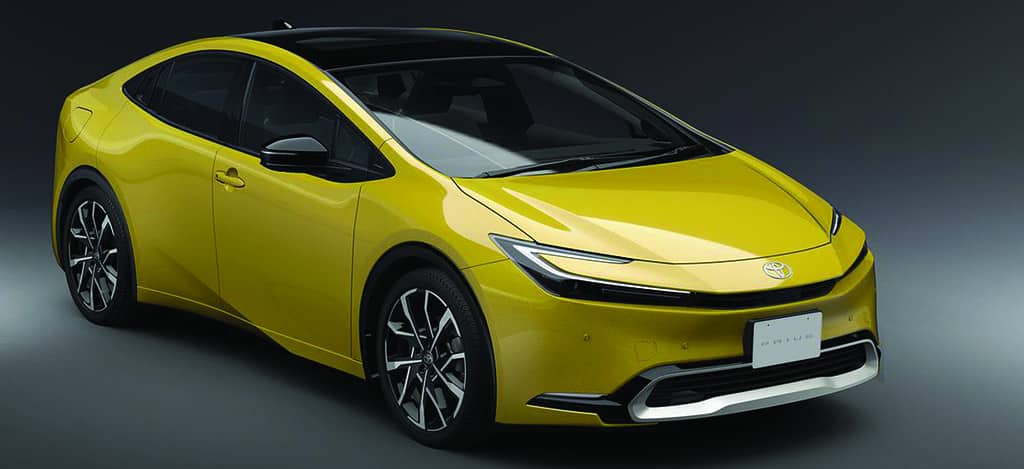
A hybrid car is a great option for long road trips due to its fuel efficiency and comfortable ride. However, the limited electric-only range of some hybrids may require frequent refueling stops. Additionally, plug-in hybrids offer longer electric-only ranges but may require more charging time.
Recently, I purchased a new Toyota Sequoia Hybrid SUV and we use it for road trips all of the time heading between the mountains and the coast on weekend getaways. While the Sequoia isn’t setup for pure mpg efficiency, the hybrid system does shine on the highway.
There are many hybrid vehicles that would be setup perfectly for long-distance driving. However, there are many differences in the types of hybrids. Some are better for driving short distances around town, while others will excel driving on the highway.
The combination of an electric motor and an internal combustion engine allows these hybrid cars the ability to travel for extended periods while still delivering the convenience of a traditional car.
Moreover, the increasing availability of charging stations along major routes has made it easier for drivers to recharge their plug-in hybrid’s battery as needed.
Ultimately, the benefits of hybrid cars, including their reduced environmental impact and ability to travel long distances with ease, make them an ideal choice for those planning extended road trips.
How far can hybrid cars drive?
Hybrid cars are vehicles that use a combination of an electric motor and a combustion engine. The distance that hybrid cars can drive depends on several factors such as the model, driving conditions, and how often the electric motor is used.
For instance, the Toyota Prius, one of the most popular hybrid vehicles, has a range of up to 58 miles per gallon. Hybrid cars are typically more efficient in city driving conditions than on the motorway, as stop-and-go traffic allows the electric motor to be used frequently.
Plug-in hybrids (PHEVs) have a much longer electric range, with some models, like the Volvo XC90, are capable of up to 40 miles on electric power alone. Overall, hybrid cars are ideal for long-distance driving as they offer a blend of efficiency and power from both the electric motor and combustion engine.
This said, not all hybrids are setup for maximum efficiency. My 2023 Toyota Sequoia is an hybrid, but it was built with outdoor adventure and towing in mind. Yes, it is a hybrid but it’s fuel economy has not been much different than the outgoing V8 engine.
In town, I have been averaging 13.7 mpg in city only driving. For long highway road trips I am consistenly getting 19.5 mpg and combined driving of 15-17 mpg depending on how much highway driving I have done.
While this may sound horrible to many hybrid owners, the Sequoia boasts a towing capacity of over 9,000 pounds and offers three rows of seating for family and friends. Plus, when you kick it into sport mode, this big heavy SUV want’s to go fast! It sounds odd to say, but the acceleration and torque of the Sequoia actually makes it fun to drive.
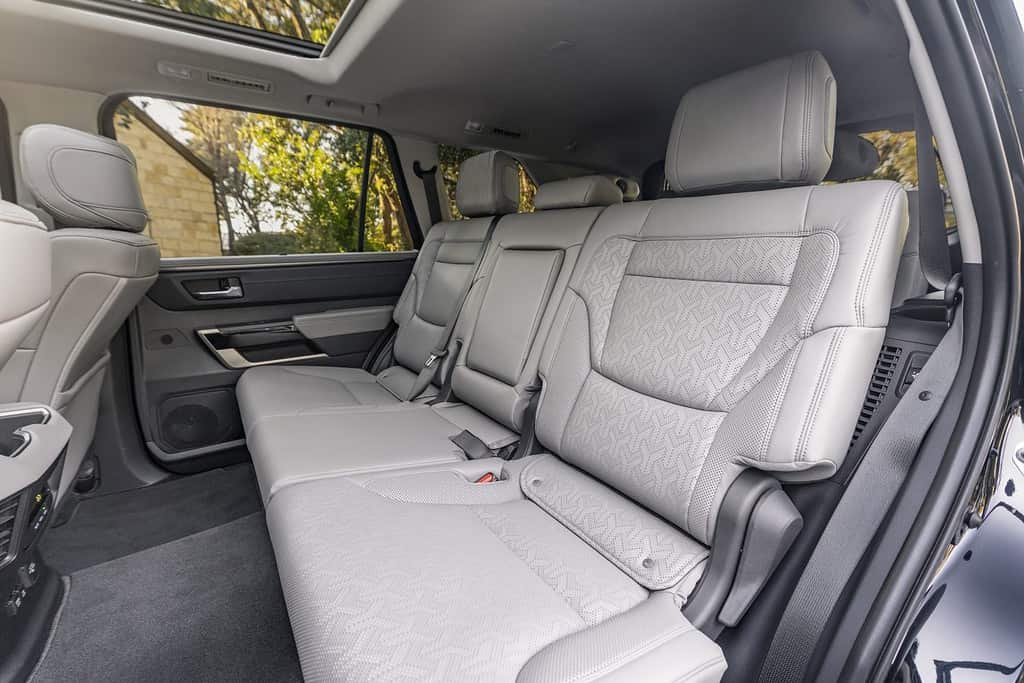
Which factors influence how far hybrids can drive?
Several factors influence how far hybrids can drive. One of the primary factors is the size and capacity of the battery. Typically, hybrids use a smaller battery compared to fully electric vehicles, which limits their range.
However, advances in battery technology have enabled some hybrids to achieve ranges of up to 600 miles on a single charge. Another factor is the type of hybrid system employed by the vehicle. For instance, plug-in hybrids are capable of driving longer distances on electric power alone since they have a larger battery and can be charged externally.
The driving style and terrain also have an impact on the range of hybrids. For instance, if a driver accelerates aggressively or drives uphill frequently, the vehicle’s battery may drain faster, reducing the range. Therefore, hybrid vehicles’ range is influenced by several factors, and car shoppers should consider these factors when shopping for a hybrid car.
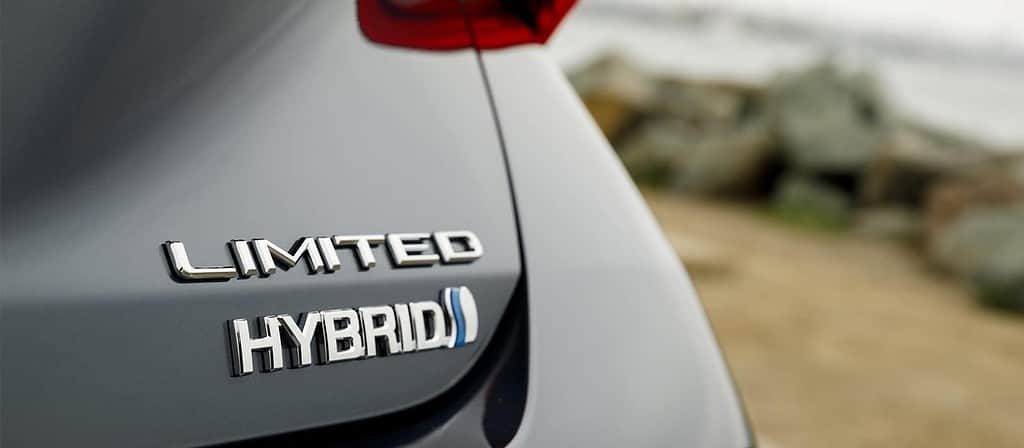
Which Hybrid Car Is Best For Long Distance Driving?
When it comes to long-distance driving, the best hybrid car on the market is the Honda Accord Hybrid.
This vehicle offers exceptional mileage, making it a great choice for those who spend a lot of time on the road. While the Toyota Prius is known for its excellent fuel economy, the Honda Accord Hybrid delivers even better gas mileage. Additionally, the Honda Accord Hybrid provides a comfortable and spacious interior, making it ideal for long drives.
The car gives a smooth ride and a quiet cabin, ensuring that passengers can relax and enjoy the journey. Overall, the best hybrid car for long-distance driving is the Honda Accord Hybrid, offering excellent gas mileage, comfort, and space.
Hybrid or Electric? What Car Is Better Long Term?
When it comes to choosing between hybrid and electric cars for long-term use, it ultimately comes down to personal preference and priorities. While hybrid cars combine the use of an electric motor and a gas engine, electric cars run solely on battery power. Both options have their advantages and disadvantages.
Hybrid cars tend to be more fuel-efficient and have a longer range than purely electric cars. They also have the ability to switch between electric and gas power, providing more flexibility for longer journeys. On the other hand, electric cars have lower emissions and can be cheaper to maintain as they have fewer moving parts.
However, their range can be limited, and finding charging stations in public areas can be challenging. Ultimately, it depends on how much one values fuel economy, environmental impact, and convenience.
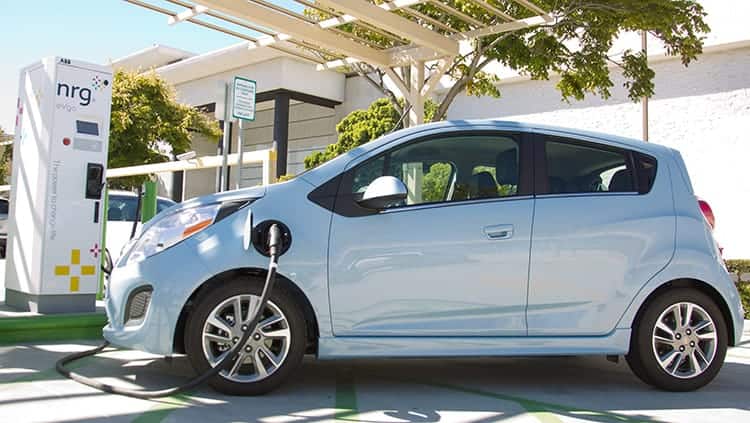
Why Choose A Hybrid Vehicle?
There are several reasons why one should choose a hybrid vehicle. Firstly, hybrid vehicles are environmentally friendly as they produce fewer emissions compared to petrol cars.
They use a combination of a petrol engine and an electric motor, making them more fuel-efficient than conventional cars. This means that you can save a significant amount of money on fuel costs. Moreover, hybrid cars can be driven on electric power alone, which produces no emissions at all.
Additionally, owning a hybrid vehicle leads to less wear and tear on the engine and brakes. Finally, hybrid and electric vehicles are the future of the automotive industry, and owning one now not only saves you money but also leaves a smaller environmental footprint.
Choosing a hybrid vehicle is a wise decision in many aspects, ranging from cost-savings to environmental benefits.
What About a Plug-In Hybrid Electric Vehicle?
A plug-in hybrid electric vehicle (PHEV) is a type of hybrid vehicle that uses both electric power and a traditional gasoline engine. Unlike a regular hybrid, which primarily relies on its gasoline engine with occasional assistance from its electric power, PHEVs can be recharged using an external power source, typically a wall socket or charging station.
This allows the vehicle to operate solely on electric power for a certain distance before switching to its gasoline engine. PHEVs offer several benefits, including lower emissions and improved fuel efficiency, resulting in better mileage compared to conventional gasoline-only vehicles.
They also offer drivers the convenience of having an electric option while still providing the range and power of a gasoline engine. PHEVs are becoming increasingly popular as more people look to reduce their carbon footprint and save money on fuel costs.
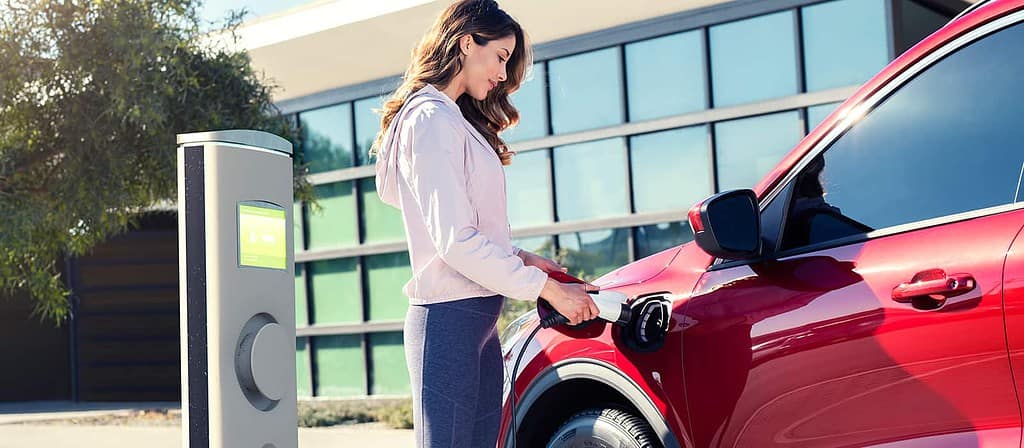
Is a full hybrid car more fun to drive?
When it comes to driving a hybrid car, one might wonder if it’s as fun as driving a traditional gasoline-powered vehicle. The answer can vary depending on personal preferences, but in general, a full hybrid car can be just as fun to drive as any other vehicle.
In fact, some drivers might even argue that hybrid vehicles are more enjoyable due to their unique driving experience. Electric motors in hybrid cars provide instant torque, which results in quicker acceleration and a more responsive handling.
Additionally, hybrid cars often have a different driving mode that allows drivers to switch between electric and gas power, providing more control and versatility on the road. Overall, a full hybrid car can be a fun and practical choice for those who want to experience driving in a new and innovative way.
Types of hybrids on the market
Hybrids are becoming more popular in today’s automobile market due to their fuel economy and eco-friendliness. There are several types of hybrids on the market, including conventional hybrids, plug-in hybrids (PHEVs), and electric vehicles.
A conventional hybrid is powered by an internal combustion engine (ICE) and an electric motor working together to optimize fuel economy. A PHEV has a larger battery, allowing it to travel longer distances using only electricity, and can be charged by plugging it in. The Toyota Prius is a popular conventional hybrid, while the Chevy Volt is an example of a PHEV.
The powertrain of these hybrids helps them achieve excellent miles per gallon while reducing emissions. Additionally, drivers can see improvements in their miles per hour while using only electricity. The combination of traditional combustion engines and electric motors is what makes a hybrid different from a pure electric vehicle.
The Pros and Cons of Hybrid Cars for Long Distance Driving
Hybrid cars are becoming increasingly popular among drivers due to their fuel efficiency and environmentally friendly features.
For long-distance driving, hybrid vehicles offer significant advantages in terms of fuel consumption, allowing drivers to travel further on a single tank. The introduction of plug-in hybrid cars has also provided more options for drivers looking to maximize their fuel economy.
However, the biggest drawback for hybrid vehicles is often their upfront cost, with prices typically higher than traditional gasoline-powered cars. Additionally, as technology is still developing, the range for long-distance driving is not yet as comprehensive as what is offered by gas-powered cars.
Despite these limitations, hybrid cars are expected to continue growing in popularity over time, with electric vehicles expected to become even more common by 2022. Overall, the benefits and drawbacks of hybrid and plug-in hybrid cars must be balanced based on individual needs, long-distance driving being just one of many factors to consider.
Hybrids we love for roadtripping
When it comes to road trips, hybrids are a great choice for their fuel economy and lower emissions. Plug-in hybrids, or PHEVs, are especially practical since they can run on electric power for shorter trips or use their hybrid powertrain for longer ones.
All-wheel drive is also a desirable feature, making them better suited for snowy or rugged terrain. In terms of cargo space, SUV models like the 2022 Jeep Grand Cherokee 4xe or the 2023 Kia Sportage hybrid are the perfect choice for families or groups of friends.
The upcoming 2023 Kia Sportage hybrid comes with a new powertrain featuring an electric drive system, which should provide even more efficiency on the road. Additionally, the Honda Accord is often hailed as one of the best hybrid vehicles available, and it’s a great option for those who prioritize comfort and safety on long journeys.
What Type of Driving Is Best For a Hybrid
When considering the best type of driving for a hybrid vehicle, it’s important to understand the benefits of this type of car. Hybrids combine a petrol engine with an electric motor, allowing them to be more fuel-efficient and environmentally friendly. Therefore, they are excellent choices for city driving, especially in areas with heavy traffic.
Since hybrids rely on both the engine and motor to power the vehicle, they see significant improvements in fuel economy during stop-and-go driving. Additionally, hybrid vehicles can also operate solely on electricity in certain circumstances, making them ideal for short urban trips where a traditional car would consume more petrol.
Overall, if you’re looking for an efficient and eco-friendly car for city driving, a hybrid vehicle is an excellent choice to consider.
Tips for driving long distances in a hybrid car
Driving long distances in a hybrid car can be an efficient and cost-effective way to travel. Whether you have a regular hybrid or a plug-in hybrid, there are a few tips you can follow to get the most out of your trip.
First and foremost, remember that hybrid and plug-in hybrid vehicles rely on a combination of electric and combustion engines. This means that you don’t need to stop to fuel up as often as you would with a traditional combustion engine car. However, it’s still important to plan your route carefully and make sure you have access to charging stations or petrol stations along the way.
Additionally, try to maintain a steady speed and avoid sudden acceleration or braking to maximize your fuel efficiency. When you do need to stop for fuel or to charge your vehicle, take the opportunity to stretch your legs and stay hydrated. By following these tips, you can enjoy a comfortable and eco-friendly long-distance road trip in your hybrid vehicle.
Are hybrid cars good for road trips?
Taking a road trip in a fuel-efficient hybrid car could allow you to travel long distances on fewer fuel stops, ultimately saving you money.
The mileage of a hybrid car is what makes it a desirable option for road trips. They use both electric and gas power, switching between the two as needed, which means you won’t waste fuel while idling in traffic.
In addition, many hybrid cars are designed for long-distance driving and have comfortable interiors with plenty of room for luggage. While they may be a bit more expensive to purchase than traditional gas cars, the long-term savings on fuel make up for it.
Overall, if you’re looking to drive a car that is cost-effective, environmentally friendly, and ideal for long trips, a fuel-efficient hybrid is a great option to consider.
are hybrid cars good for long-distance driving
Hybrid cars can be a great choice for long-distance driving, depending on your driving style and the specific type of hybrid you choose.
Regular hybrids typically provide excellent mileage in both city and highway driving, making them a reliable choice for long journeys. Some models even offer electric-only driving modes, which can be ideal for highway cruising.
However, if you prefer more sporty driving or higher speeds, a regular hybrid may not be the best option, as the electric power may not be enough to keep up with your demands.
A plug-in hybrid or a hybrid with a larger battery may be a better fit if you want more power for your long-distance trip.
Ultimately, it’s important to consider your driving needs and preferences when determining if a hybrid car is a good choice for your long-distance driving needs.
How Far Can the Typical Hybrid Car Travel?
Hybrid cars have become increasingly popular in recent years thanks to their fuel efficiency and low emissions. The typical hybrid car can travel a similar distance as a regular petrol car – between 300-600 miles on a full tank.
However, the fuel economy of a hybrid is much better, making it an ideal option for those who frequently drive in the city. In city driving, hybrid cars can travel up to 50 miles per gallon, while on the highway, they can achieve up to 40 miles per gallon. The distance a hybrid car can travel largely depends on the driving conditions.
Long-distance drives with a combination of city and highway driving will see a reduction in fuel economy, which will decrease the overall distance the car can travel before needing a refill. Overall, hybrid cars are an efficient choice for those who do a lot of driving in the city or are conscious of their carbon emissions.
Which factors influence how far hybrids can drive?
Several factors influence how far hybrids can drive. Firstly, the battery size and capacity of a hybrid car play a key role in determining its driving range. Hybrid vehicles with larger battery packs tend to travel farther distances compared to those with smaller ones. Secondly, the type of hybrid system a car uses influences its driving range.
Parallel hybrids, for instance, can only operate in electric mode for short distances while series hybrids can run for extended periods solely on electricity. Thirdly, fuel efficiency can be a game-changer as it allows hybrids to go longer distances without having to refuel. Lastly, driving conditions such as terrain, traffic, and climate can also impact the range of a hybrid car.
Hilly, congested, and extreme weather conditions tend to reduce the driving range of hybrid vehicles. In conclusion, the driving range of hybrids is influenced by several interconnected factors, the combination of which determines the distance a hybrid can travel on a full tank of gas and battery charge.
